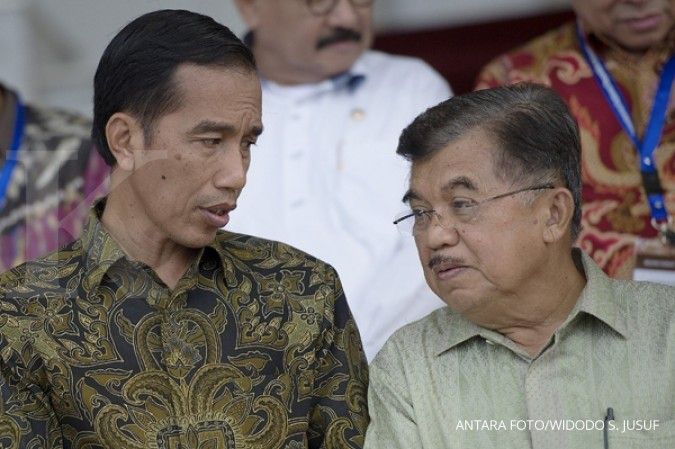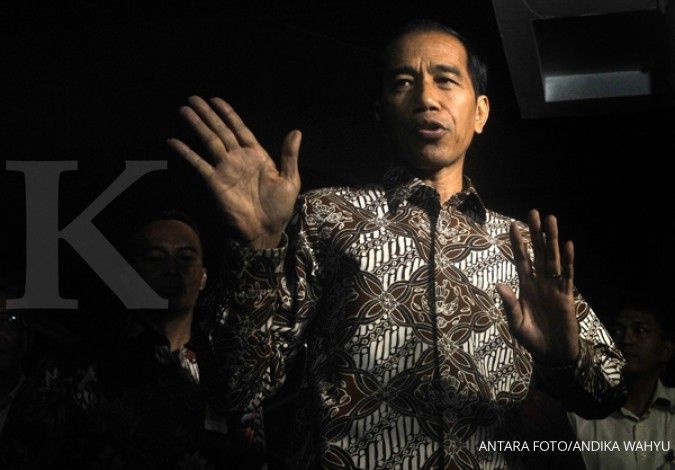The Corruption Eradication Commission (KPK) warned on Tuesday that the National Police’s moves in handling criminal reports against its commissioners could cause a total paralysis of the antigraft body’s leadership.
KPK prevention unit deputy Johan Budi said the total paralysis could take place if the National Police pressed ahead with processing the criminal reports filed against all KPK commissioners and named them as suspects, as it would automatically result in the suspension of KPK commissioners as regulated under Article 32 of Law No. 30/2002.
The article stipulates that KPK commissioners must be suspended if they are facing criminal charges.
“It is difficult to understand that the series of criminal reports against KPK commissioners is not coincidental. After Pak Bambang Widjojanto was named a suspect by the police on Friday, then Pak Adnan Pandu Praja and Pak Abraham were reported afterward. I also hear that a police report will be filed against Pak Zulkarnain [on Wednesday]. It’s a perfect scheme, isn’t it?,” Johan said at the KPK headquarters on Tuesday, referring to KPK commissioners.
Johan then called on the National Police to act professionally and avoid conflicts of interest in handling reports against KPK leaders.
“Now, it depends on the National Police whether they can soon find strong evidence to support their claims and declare KPK commissioners as suspects. If that’s the case, one by one, the KPK commissioners will be suspended from their posts.”
Unlike the KPK, which looks into corruption reports for months or even years before declaring someone a suspect, it only took four days for the police to process a criminal report, filed by Indonesian Democratic Party of Struggle (PDI-P) politician Sugianto Sabran. The police also moved swiftly to arrest Bambang late last week.
Bambang was released from detention early on Saturday.
The controversial move against Bambang came after the antigraft body declared on Jan. 13 National Police chief nominee Comr. Gen. Budi Gunawan a graft suspect for amassing Rp 95 billion (US$7.6 million) when serving as head of the Career Development Bureau at the National Police headquarters from 2004 to 2006. The antigraft body started investigating Budi in July last year.
National Police spokesman Sr. Comr. Rikwanto said that police investigators were still working to find evidence that could implicate Abraham and Adnan in criminal cases.
“We have not yet determined when to summon them for questioning, it all depends on the evidence we collect,” Rikwanto said.
An NGO from East Java is expected to file a report against Zulkarnain on Wednesday on allegations that he mishandled a graft case when he served as East Java chief prosecutor in 2009.
Soon after arresting Bambang, the National Police opened a new investigation into another deputy chairman, Adnan Pandu Praja, who was reported to the police for illegally taking over the shares of a logging company, PT Desy Timber, in Berau, East Kalimantan.
Currently, the police are also looking into a possible abuse of authority involving Abraham for his alleged efforts to recommend a lenient prison sentence for PDI-P lawmaker Emir Moeis.
The Jakarta Corruption Court sentenced Emir to three years in prison in April 2014 for accepting bribes in a graft case surrounding the construction of a power plant in Lampung.
Although Jokowi has yet to officially issue a presidential decree to establish an independent team to probe the standoff between the KPK and the National Police, the team started work on Tuesday while Jokowi took a trip to Medan, North Sumatra.
Members of the team include former KPK commissioners Erry Riyana Hardjapamekas and Tumpak Hatorangan Panggabean, former Constitutional Court chief justice Jimly Asshiddiqie, University of Indonesia professor and international law expert Hikmahanto Juwana, prominent Muslim scholar Ahmad Syafii Maarif, as well as former chairman of Indonesia’s second largest Islamic organization Muhammadiyah and former National Police deputy chief Comr. Gen. (ret) Oegroseno. (Haeril Halim and Ina Parlina)
/2015/01/26/952416714.jpg)











